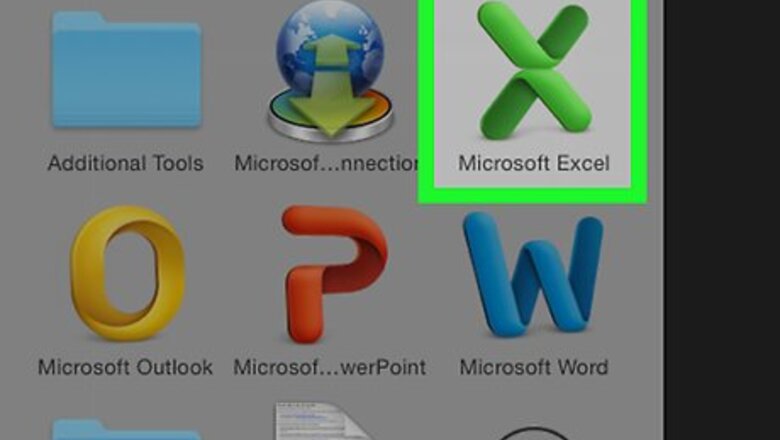
views
Using Templates

Open Microsoft Excel. It's a dark-green app with a white "X" on it.
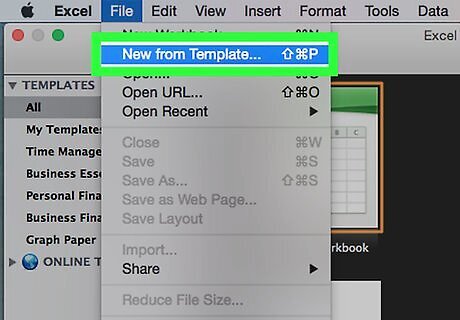
Click the search bar. It's at the top of the Excel window. On Mac, first click File in the upper-left corner, then click New from Template… in the drop-down menu.
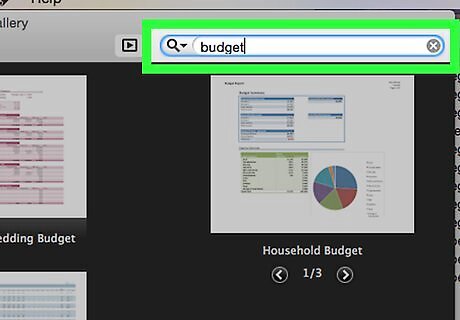
Type budget into the search bar, then press ↵ Enter. Doing so will bring up a list of personal budget pre-made templates.
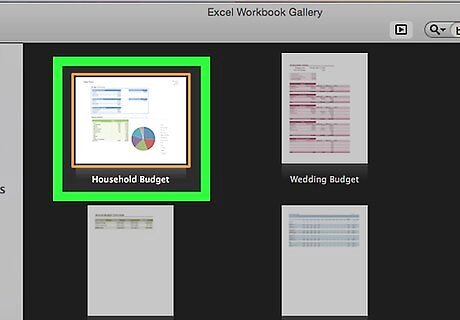
Select a template. Click on a budget template whose title and preview both look like they'll suit your needs. This will open the template's page, where you can review more information about the template. "Expense budget" and "Basic personal budget" are two excellent templates in this context.
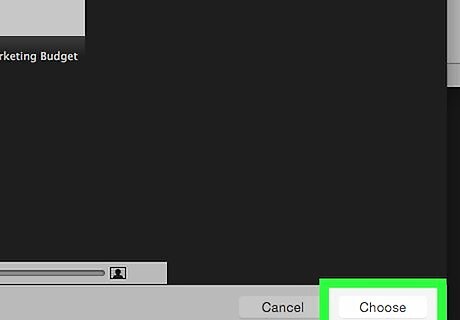
Click Choose. It's to the right of the template's image. Doing so will open the template in Excel.

Fill out your template. This step will vary depending on your selected template; most templates will allow you to list your expenses and their respective costs, and then calculate your total spending. Most templates come with built-in formulas, so any changes that you make to one part of your template will update everywhere else.
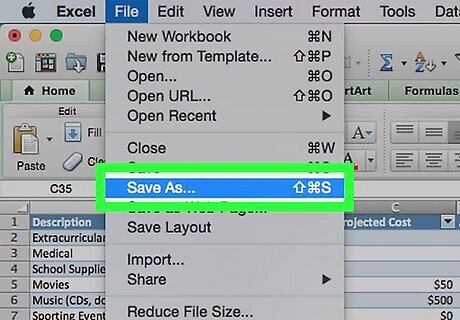
Save your personal budget. Once you've completely created your budget, all that's left to do is save it onto your computer. To do so: Windows - Click File, click Save As, double-click This PC, click a save location on the left side of the window, type the document's name (e.g., "Personal Budget") into the "File name" text box, and click Save. Mac - Click File, click Save As..., enter the document's name (e.g., "Personal Budget") in the "Save As" field, select a save location by clicking the "Where" box and clicking a folder, and click Save.
Making a Manual Budget
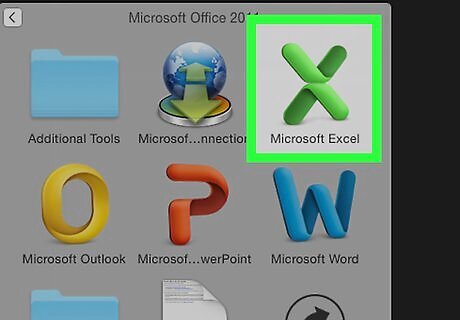
Open Microsoft Excel. It's a dark-green app with a white "X" on it.
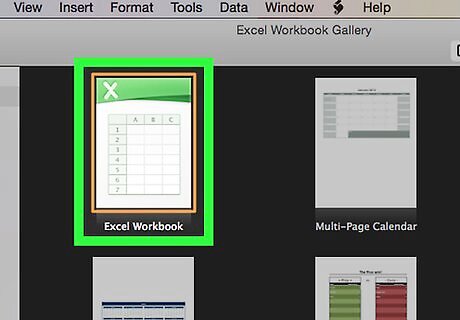
Click Blank workbook. You'll find this in the upper-left side of the page. On Mac, skip this step if a blank Excel presentation opens when you open Excel.
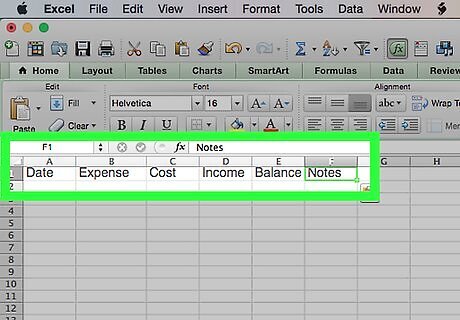
Enter your budget headers. Starting with cell A1 in the top-left corner of the sheet, enter the following: A1 - Type in "Date" B1 - Type in "Expense" C1 - Type in "Cost" D1 - Type in "Income" E1 - Type in "Balance" F1 - Type in "Notes"
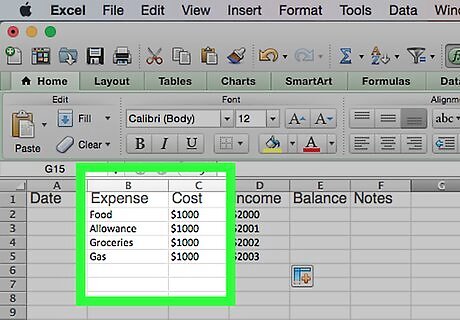
Enter at least a month's worth of expenses and dates. In the "Expenses" column, type in the name of each expense that you know of (or anticipate) for at least a month, then enter the cost of each expense in the "Cost" column across from the pertinent expense names. You should also enter the date to the left of each expense in the "Date" column. You can also just type in a month's worth of dates and only fill in the cells in which you have expenses.
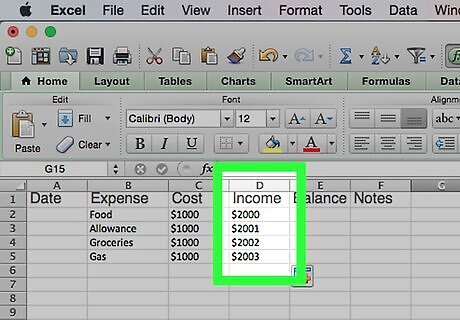
Enter your income. For each date, enter the amount that you'll earn on that day in the "Income" column. If you won't earn anything, just leave the cell for that day blank.
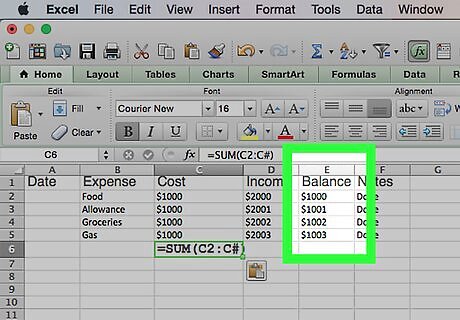
Enter your account balance. Taking into account how much you've spent and how much you've earned on any given day, enter the remaining total in the "Balance"

Add notes. If any payment, balance, or day has a different outcome than usual, make a note of it in the "Notes" column to the right of the row in question. This will help keep unusual or large payments easy to remember. You might also type "Recurring" next to a row containing an expense for a subscription or a monthly (or weekly) service.
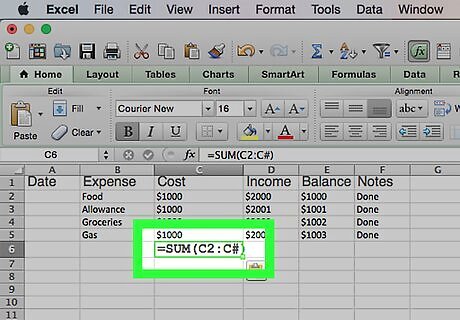
Enter the calculation formula. Click the first empty cell below the "Cost" column, then type in the following: =SUM(C2:C#) where "#" is the number of the last filled cell in the "C" column. Press ↵ Enter when you're done to enter the formula and display the total cost of all of your expenses in this budget. You'll use this same exact formula for the "Income" and "Balance" fields as well, except that you'll use "D" and "E" respectively instead of "C".
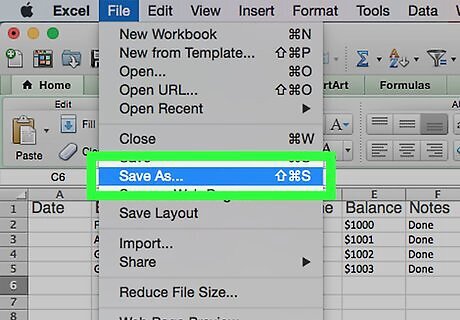
Save your personal budget. Once your budget is complete, you just need to save it on your computer. To do so: Windows - Click File, click Save As, double-click This PC, click a save location on the left side of the window, type the document's name (e.g., "Personal Budget") into the "File name" text box, and click Save. Mac - Click File, click Save As..., enter the document's name (e.g., "Personal Budget") in the "Save As" field, select a save location by clicking the "Where" box and clicking a folder, and click Save.




















Comments
0 comment